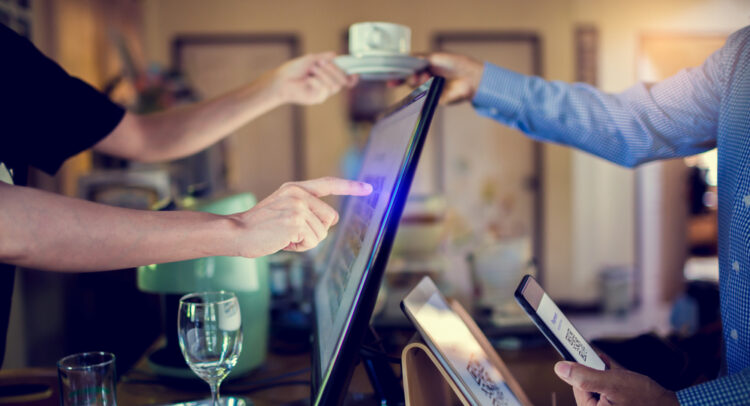Eating out is an opportunity to take the night off from toiling in the kitchen while expanding your palate by experimenting with new dishes and tastes. It can also add up to a significant line item on your budget, depending on the frequency of your culinary adventures. Still, you do not need to break the bank when going out to a restaurant. Here are five tips to save money when eating out.
Claim 50% Off TipRanks Premium
- Unlock hedge fund-level data and powerful investing tools for smarter, sharper decisions
- Stay ahead of the market with the latest news and analysis and maximize your portfolio's potential
All personal finance decisions involve a trade-off between our various wants and needs. Barring extenuating circumstances, eating out certainly qualifies as discretionary spending. That being said, there are certainly options for doing so on the cheaper side.
1. Look for Deals
Scan the ads for restaurants in your neighborhood to see which ones might be offering some deals. There might be two-for-one specials or options for kids to eat for free.
It is not just various locations that might give you better deals, but alternative, off-peak times that could do the trick. For instance, consider going out during Happy Hours and times of the day that do not attract large crowds. Lunch also often tends to be cheaper than dinner. It follows that if you have the flexibility to head out earlier in the day, you might be able to save some serious dough.
2. Phone a Friend
Going out with a friend with similar taste buds? Think about ordering one entree and one appetizer and splitting the two. This can help you save a few bucks.
Also, your outing is about more than the cost of the food. Driving and parking–especially in popular geographies–can add up. You can split these expenses when you are going with your friends.
3. Be Specific
Having a culinary experience does not mean that you need to eat everything in sight, gorging yourself to the point of discomfort in order to be satisfied. Five-course meals are great in theory, though they may not be so good for your wallet.
Instead, think about going out for a specific purpose, such as an itch to try that wood-burning pizza place at the new spot that opened up down the street. Go out for a slice, and then come back home for some ice cream that you bought at the supermarket.
Alternatively, if you have a sweet tooth, you can eat a basic dinner at home and then go out for some succulent sweets afterwards. You will save on costs while satisfying your sugary desires.
4. Focus on the Food
We are going out to eat when we frequent a restaurant. So, why not put our focus on the main course? Multiple appetizers, drinks, and desserts will all add up, and your eventual bill will be both bloated and a bummer.
Another piece of advice: Look at the menu at your future destination in advance. Deciding what you are ordering before you go can help you choose a more economical option before your taste buds and rumbling stomach get a chance to dictate what to order.
5. Make It Count
Think in advance about when and where you want to eat. This will help you avoid the last-minute take-out you did not really want and instead spend your money on the foods and experiences you truly desire.
Another way to make your venture more economical: order something you do not think you are going to finish, which you can then take home and eat later. This will give you more bang for your buck and help stretch your dollars even further.
Bonus Tip: Put Eating Out Into Your Budget
Here is a bonus tip that is worth mentioning when it comes to eating out (and really all personal finance-related choices): crafting a budget will help you to be intentional about your spending choices.
If you know that you have $100 to spend on eating out each month, this will guide your decision-making and make your choices straightforward. For instance, you could buy tacos four times a week or splurge at a fancy French restaurant at the end of the month.
Your discretionary spending choices are yours to make. Just make sure that you budget for them.
Conclusion: Everything in Proportion
For those on a tight budget, cutting down on eating in restaurants is a natural tendency. It certainly makes sense, as eating at home is almost always a more economical option.
However, just because you need to be smart with spending does not mean that your every meal should be rice and beans. Depriving yourself of all of life’s joys can make it more difficult to remain disciplined with your spending, as the urge to splurge can grow if you never treat yourself.
There is a time and place for eating at home and when you are out and about. Thinking about your choices can allow you to keep everything in proportion, helping you arrive at the balance that works for both your appetite and your bank account.
Learn money management, and use data-driven stock insights with TipRanks.
















